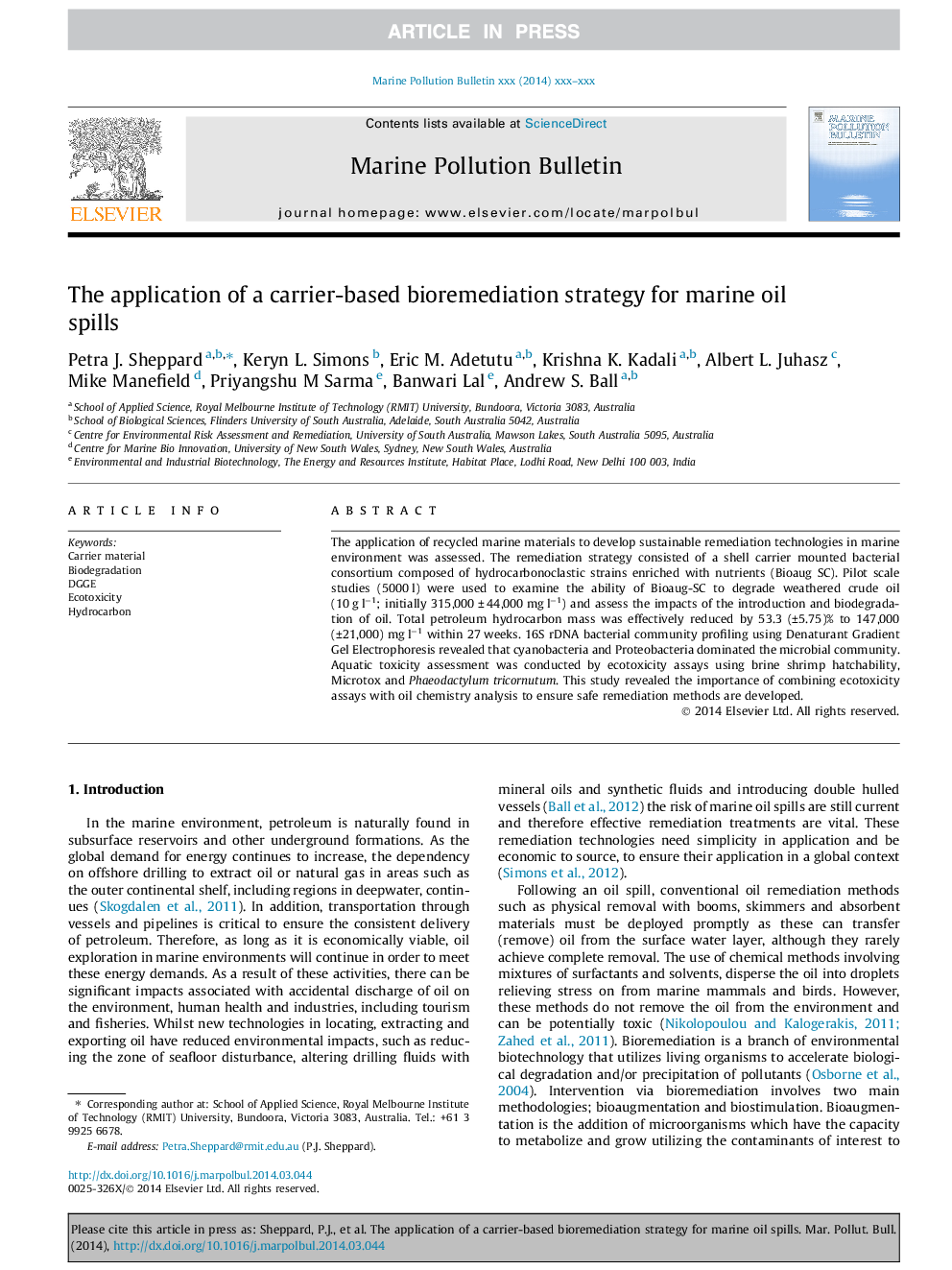| Article ID | Journal | Published Year | Pages | File Type |
|---|---|---|---|---|
| 6358705 | Marine Pollution Bulletin | 2014 | 8 Pages |
Abstract
The application of recycled marine materials to develop sustainable remediation technologies in marine environment was assessed. The remediation strategy consisted of a shell carrier mounted bacterial consortium composed of hydrocarbonoclastic strains enriched with nutrients (Bioaug SC). Pilot scale studies (5000 l) were used to examine the ability of Bioaug-SC to degrade weathered crude oil (10 g lâ1; initially 315,000 ± 44,000 mg lâ1) and assess the impacts of the introduction and biodegradation of oil. Total petroleum hydrocarbon mass was effectively reduced by 53.3 (±5.75)% to 147,000 (±21,000) mg lâ1 within 27 weeks. 16S rDNA bacterial community profiling using Denaturant Gradient Gel Electrophoresis revealed that cyanobacteria and Proteobacteria dominated the microbial community. Aquatic toxicity assessment was conducted by ecotoxicity assays using brine shrimp hatchability, Microtox and Phaeodactylum tricornutum. This study revealed the importance of combining ecotoxicity assays with oil chemistry analysis to ensure safe remediation methods are developed.
Related Topics
Physical Sciences and Engineering
Earth and Planetary Sciences
Oceanography
Authors
Petra J. Sheppard, Keryn L. Simons, Eric M. Adetutu, Krishna K. Kadali, Albert L. Juhasz, Mike Manefield, Priyangshu M Sarma, Banwari Lal, Andrew S. Ball,
